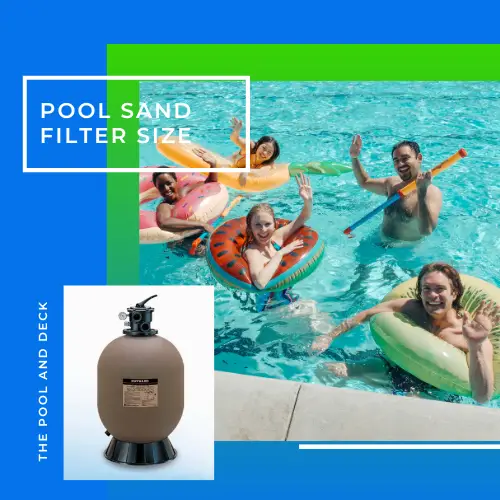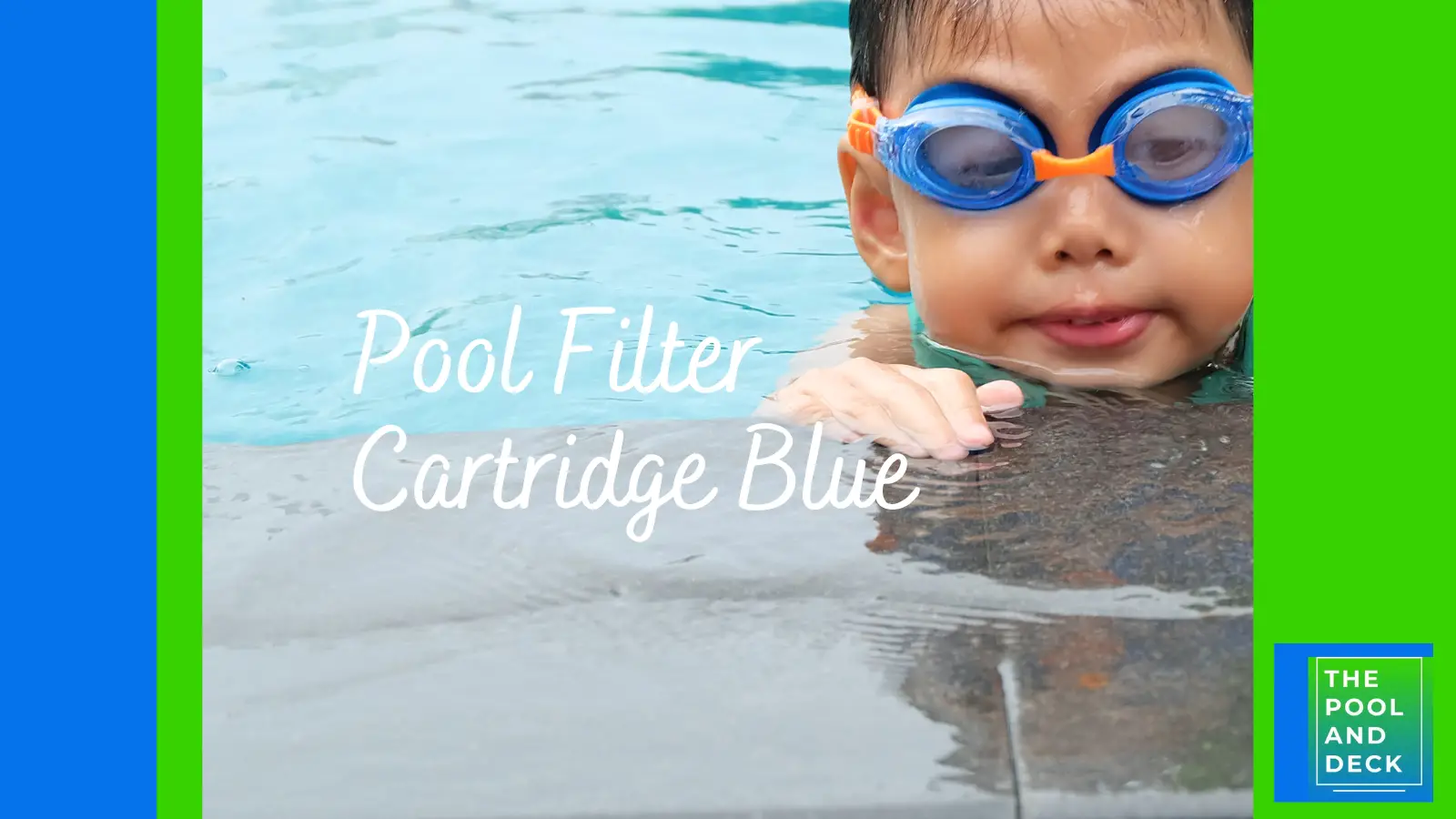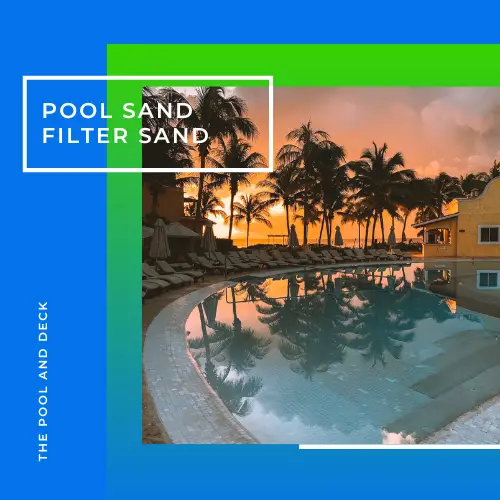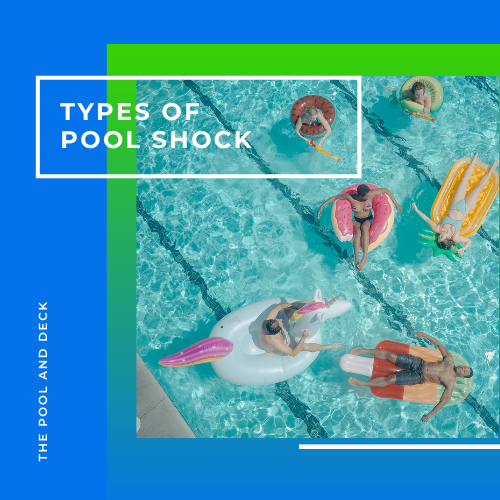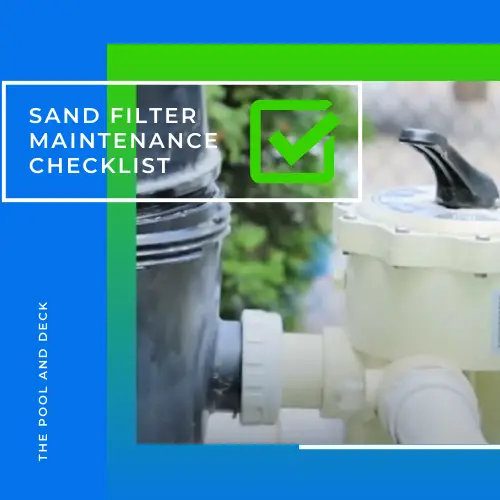Best Type of Pool Filter? Ultimate Guide for Beginners!
Table of Contents
Which is the Best Type of Pool Filter?
Let’s face it, deciding on the best type of pool filter, for your backyard oasis, can be daunting, especially if you are a first time pool owner. Obviously, you desire a sparkling clean pool in your backyard. And of course you want to stay within your budget. So, which is the best type of pool filter for you?
If you are looking for a quick answer, just use the comparison table below to make your decision.
| Feature | Sand Filter | DE Filter | Cartridge Filter |
| Initial Cost | Moderate | High | Low |
| Filtration Capability | Sand – 20 microns Zeolite – 10 microns Glass – 5 microns | 2 – 3 microns | 10 – 15 microns |
| Media Life | 5 – 6 years | 8 – 10 years | 1 – 2 years |
| Backwashing | Required Frequently | Required Less Frequently | Not Required |
| MPV Required | Yes | Yes | No |
| Installation | Moderate Difficulty | Moderate to High Difficulty | Easy |
| Operating Costs | Moderate | Moderate | Low |
| Energy Efficiency | Low to Moderate | High | Moderate to High |
| Ideal for | Inground Backyard Pools for use by Midsize Families | Inground Public Pools with Heavy Usage | Above Ground Small Pools for use by Small Families |
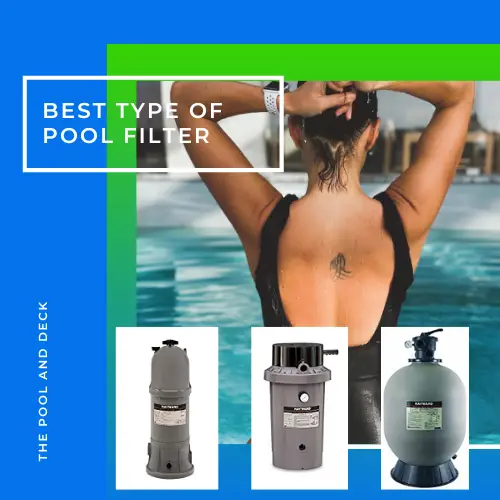
Key Takeaways
Sand pool filters are a good option for inground backyard pools for use by midsize families. They are affordable, durable and need little maintenance.
DE pool filters are an overkill for home use but perfect for public pools where usage is heavy and pool maintenance is done by a contractor.
Cartridge pool filters are perfect for above ground small pools as they are cheap, easy to install and maintain.
Now, if you really want to get an in-depth understanding, read the full article. I take a deep dive into the three most common types of pool filters: sand, cartridge, and diatomaceous earth (DE).
I’ll explain how each type works, their pros and cons, and which one is the best type of pool filter for your specific needs.
What is a Sand Pool Filter?
A sand pool filter is the most common type of pool filter. It uses either silica sand or an alternative such as zeolite or pool filter glass as the media. The sand pool filter consists of a housing (aka filter tank), ⅔rds of which is filled with the sand media.
Pool water enters the housing from the top, goes down a standpipe and is pushed out into the sand bed through perforations in laterals. Laterals are tubes with holes that extend radially from the bottom of the standpipe into the sand bed.
The sand catches any solid particles but allows water to pass, which is directed back into the pool through return lines and jets.
Over a period of time the sand begins to clog up with trapped debris and it becomes harder and harder for the pool pump to push the water through the filter.
The dirty sand media is cleaned up by a process called backwashing. The flow of water through the filter is reversed to flush out the trapped debris and drain it to waste.
Sand filters are very popular among homeowners as they are a low-maintenance and cost-effective filter option. Sand filters are ideal for small family homes with a modest sized above ground or inground pool in the backyard.
What is a DE Pool Filter?
DE (diatomaceous earth) filters are a bit more complex than sand filters. Instead of the sand media they use a fine powder made out of fossilized diatoms, known as diatomaceous earth (DE).
DE is deposited on a plastic or powder-coated metal grid with a nylon or polyester mesh screen to form a thin filter cake on the surface.
Pool water is forced through the filter cake. Solid particles such as dirt and contaminants are trapped, while clean water passes through and is returned to the pool.
Just like a sand pool filter, when the DE pool filter gets overloaded with trapped debris, it can be cleaned by backwashing. DE grids last for multiple years but you may need to replace them when they are no longer effective.
DE pool filters are expensive but they do a fantastic job of removing even the smallest particles. A DE pool filter is usually even able to trap and eliminate algae spores before they have a chance to take over your pool.
What is a Cartridge Pool Filter?
Cartridge pool filters use polyester or other synthetic materials to trap dirt and debris. In order to maximize the surface area of the filter surface the fabric is arranged in pleats within a cartridge.
The pool water flows through the cartridge, which traps the solid particles but allows clean water to pass through and be directed back to the pool. As with sand and DE filters, the cartridge begins to clog up with contaminants over a period of time.
However, unlike sand and DE filters, a cartridge filter can not be backwashed. Instead the filter cartridge must be removed and cleaned either with a garden hose or by soaking it overnight in a pool filter cleaner solution.
The life of the filter cartridge is also relatively short and it needs to be replaced every 1-2 years.
Cartridge filters do have a few advantages. They are compact in design, making them easy to install and move if necessary. They are also energy-efficient, low maintenance and eliminate loss of pool chemicals due to backwashing.
Sand Pool Filter: Pros & Cons
Pros:
- Cost-effective: Sand pool filters are typically the least expensive option.
- Easy to Use: Sand pool filters are easy to use and require minimal setup and maintenance. They are also compatible with a wide range of pool systems and can be used in both above-ground and in-ground pools.
- Highly Durable: Sand pool filters are very durable and can last for many years with proper maintenance. They are made of high-quality materials that are resistant to corrosion and wear and tear.
- Low Maintenance: Sand pool filters require relatively little maintenance other than backwashing every 2 – 3 weeks and sand change every 5 – 6 years.
- Filtration Capability: Silica sand can filter only solid particles that are at least 20 microns in size. However, you can increase the filtration capability of a sand pool filter by switching to Zeolite (10 microns) or Recycled Filter Glass (5 microns) media.
Cons:
- Frequent Backwashing: Though the actual backwashing process of a sand pool filter is not complicated, you do lose a fair amount of pool water (and expensive pool chemicals) everytime you backwash.
- Sand Replacement: Silica sand media has a life of around 5 – 6 years. Though not expensive, changing sand can be physically challenging and back breaking. Switching to alternate filter media will increase the life and reduce the frequency for change.
- Filter Leaks: Sand pool filters are more prone to leaks. Any damage to the standpipe or laterals can send the sand into your pool which would be super hard to clean up.
DE Pool Filter: Pros & Cons
Pros:
- Superior Filtration: DE (diatomaceous earth) is extremely fine and as a result DE pool filters can trap particles as small as 2 – 3 microns.
- Less Frequent Backwashing Required: As DE pool filters need to be backwashed a lot less frequently, they significantly reduce pool water and pool chemical losses.
- Energy Efficient: DE pool filters are more energy efficient than other types of pool filters, as they require less water pressure to operate. DE pool filter reduce the operating costs.
- Durable: DE pool filters are made of high-quality materials that are designed to withstand the harsh conditions of outdoor use. They are resistant to corrosion and wear and tear, and can last for many years with proper maintenance.
- Very Low Maintenance: DE pool filters require very little maintenance. They need to be backwashed much less and the DE filter grids can last up to 10 years.
Cons:
- Very Expensive: DE pool filters are a lot more expensive (2 – 3 times) than a sand pool filter. The filter media, diatomaceous earth, which needs to be topped up after every backwash, is quite expensive too.
- Health Concerns: DE is extremely fine powder and can become a health issue when it comes in contact with human skin, eyes or if inhaled. DE is also a known carcinogen.
- Disassembly: DE Filters also require disassembly, once or twice a year, to clean the filter grids and tubes.
Cartridge Pool Filter: Pros & Cons
Pros:
- Low Cost: Not only are cartridge pool filters cheaper than other options, the cartridge itself is also fairly inexpensive.
- Decent Filtration: A cartridge pool filter can trap particles and debris as small as 10-15 microns in size. This is better than what a sand pool filter can do, though not as good as a DE pool filter.
- Easy to Install: Cartridge pool filters are compact, easy to install and can be done without professional help. They are compatible with a wide range of pool systems and can be used in both above-ground and in-ground pools.
- Low Operating Costs: A cartridge pool filter can not be backwashed. As a result you do not lose any pool water and the expensive pool chemicals when you clean the cartridge. Hardly any water is wasted if you soak the cartridge overnight in a pool filter cleaner solution to clean it.
- Low Maintenance: Cartridge pool filters require relatively little maintenance. They are easy to clean and take apart if required.
Cons:
- Limited Lifespan: Cartridge pool filters have a limited lifespan compared to other types of pool filters. The cartridge needs to be replaced every 1 – 2 years.
- Disassembly for Cleaning: As cartridge filters can not be backwashed, they need to be disassembled, the cartridge taken out and cleaned. This can be time consuming and require more effort, if your pool is used heavily.
- Lack of MPV: There is no need for a multiport valve (MPV) in a cartridge filter. While this helps reduce the overall cost, you need to make extraneous arrangements for partially draining pool water.
As an Amazon Associate, I earn from qualifying purchases.
Recommended Products
Thank you very much for reading the post. I do hope you found it informative and helpful.

